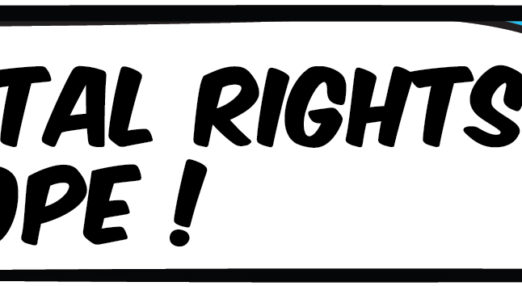UK
Filter by...
-

UK government pushes for companies to weaken encryption
The terrorist attack in Manchester on 22 May has led to a relaunch of the encryption debate in the UK. In December 2016, the UK parliament passed the Investigatory Powers Act. This wide-ranging surveillance law gives government ministers the power to issue Technical Capability Notices (TCNs), which can force companies to modify their products.These powers could […]
Read more
-

UK Digital Economy Act: Millions of websites could be blocked
The Digital Economy Act has become law in the United Kingdom. This wide-ranging law has several areas of concern for digital rights, and could seriously affect privacy and freedom of expression of internet users. One of the main concerns is that it will compel legal pornographic websites to verify the age of their users. The British […]
Read more
-

UK government attacks encryption … again
In the aftermath of the attack in London in March 2017, the UK government has, again, indicated that it wants to force companies to weaken encryption. The government wants to be able to access messages sent via services that use end-to-end encryption. The Home Secretary Amber Rudd stated on BBC One’s Andrew Marr Show that it […]
Read more
-

The UK Digital Economy Bill: Threat to free speech and privacy
The Digital Economy Bill is being debated by the House of Lords in the United Kingdom. This is a far-reaching bill that covers a range of digital issues, including better broadband coverage across the UK. However, from the digital rights point of view, there are three main areas of concern.
Read more
-

Proposed Espionage Act threatens free speech in the UK
The UK’s Law Commission has announced proposals that could mean journalists and whistleblowers are treated as spies if they “handle” official data. The ongoing open public consultation on the protection of official data, run by the Law Commission, suggests that the crime of espionage is changed so that it is “capable of being committed by […]
Read more
-

How digital rights in the UK will be affected by Brexit
The United Kingdom’s vote to leave the EU means that inhabitants of the country no longer have a clear idea what levels and kinds of protection of digital rights they will have in the future. Nearly all the relevant law is European. A lot depends on the kind of model of leaving the EU that […]
Read more
-

UK Draft Investigatory Powers Bill: Missed opportunity
The UK Government has published a draft of the long-awaited Investigatory Powers Bill. Since the Snowden revelations, civil liberty groups have been calling for a new law that would restrain the UK intelligence and law enforcement agencies. The UK government, however, has been calling for increased surveillance powers since the failure of the draft Communications […]
Read more
-

European Digital Rights asks the European Commission to investigate illegal data retention laws in the EU
European Digital Rights (EDRi) this morning sent a letter to European Commission First Vice-President Frans Timmermans, asking the European Commission to investigate the data retention laws in EU Member States which appear to be illegal in light of the Court of Justice of the European Union (CJEU) ruling on this issue from 8 April last […]
Read more
-

UK: Report of the investigatory powers review
A key report reviewing the UK’s legal framework governing surveillance commissioned by the Government and written by David Anderson QC, was released on 11 June 2015. The thrust of the report is a resounding call for wholesale reform of Britain’s surveillance legislation with it concluding that “This state of affairs is undemocratic, unnecessary and – […]
Read more
-

Scottish Government proposes a national ID database
The Scottish Government has run a consultation to use the National Health Service (NHS) Registry database as a means to connect citizens’ data and allow online logins. The proposal has similar characteristics to the plan to introduce an Identity Database in the United Kingdom which was abandoned in 2006. Campaigners and opposition parties have urged […]
Read more
-

UK court finds secret spying docs made surveillance illegal
Several human rights groups are celebrating a major victory against the Five Eyes, an intelligence alliance comprising Australia, Canada, New Zealand, the UK and the US, as the UK surveillance tribunal ruled on 6 February that the Government Communications Headquarters (GCHQ) acted unlawfully in accessing millions of private communications collected by the National Security Agency […]
Read more
-

Danish court orders a UK company to block Danish IP addresses
In Denmark, and in most other EU member states, furniture design is protected by copyright for 70 years from the death of the designer. However, a few member states have shorter protections for furniture. In the United Kingdom, for example, Article 52 of the Copyright Designs and Patents Act of 1988 limited the protection for […]
Read more
